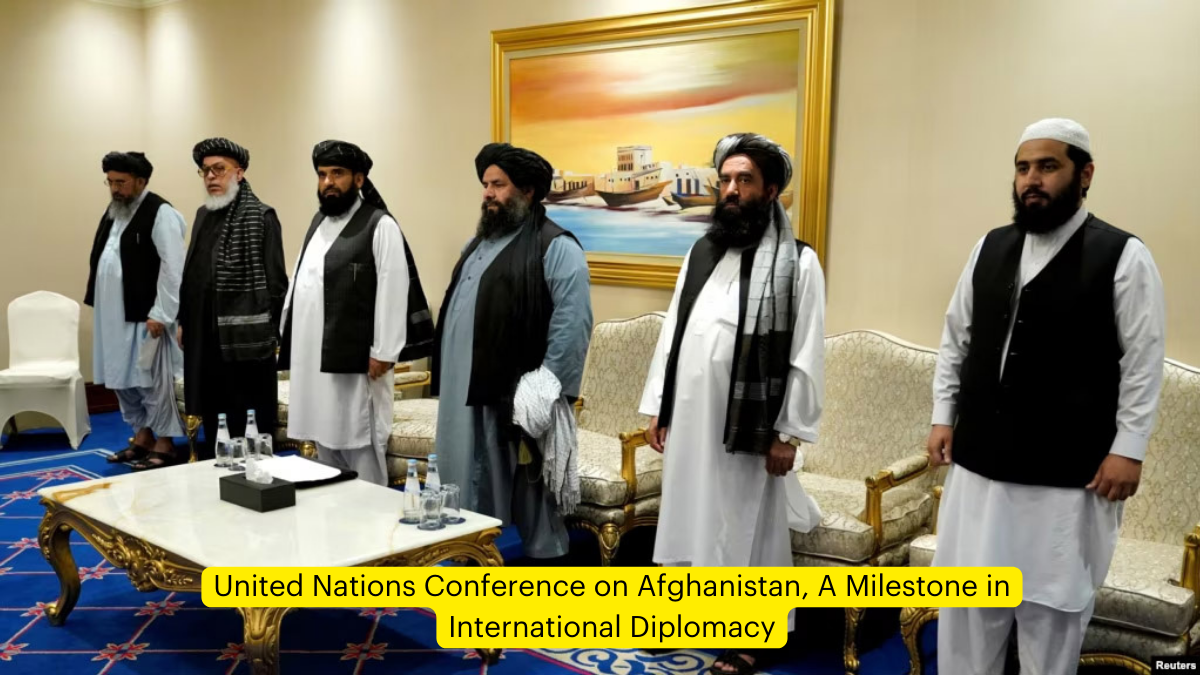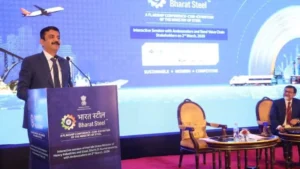On June 30 and July 1, 2024, the world witnessed a significant event in international relations. The third United Nations Conference on Afghanistan took place in Doha, Qatar, marking the first time the Taliban participated in such talks since taking control of Afghanistan.
The Significance of the Conference
A Historic First
This conference stands out as a crucial moment in Afghanistan’s recent history. For the first time, the Taliban, who currently rule Afghanistan, joined international discussions about the country’s future.
Bringing Key Players Together
The conference brought together representatives from:
- 25 countries
- International organizations like the European Union and Shanghai Cooperation Organisation
- The Taliban leadership
Key Participants
From the Taliban
- Zabihullah Mujahid, Taliban government chief spokesman
From India
- J P Singh, Joint Secretary in the Ministry of External Affairs
From the United Nations
- Rosemary DiCarlo, undersecretary-general for political and peacebuilding affairs
The Road to the Third Conference
First Conference (May 2023)
- Held in Doha
- Taliban not invited
Second Conference (February 2024)
- Also in Doha
- Taliban refused to attend due to disagreements over conditions
Third Conference (June-July 2024)
- Taliban participated
- Afghan civil society representatives not present
Main Agenda: Seeking Peace and Progress
The United Nations organized this conference with several goals:
- Promote peace in Afghanistan
- Discuss women’s rights
- Address girls’ education
- Tackle human rights issues
Challenges in Afghanistan
Women’s Rights Concerns
Since 2021, the Taliban has imposed strict rules affecting women:
- Closed girls’ schools above sixth grade
- Banned women from universities and most jobs
- Enforced strict dress codes
- Limited women’s movement outside homes
International Stance on Taliban Rule
Limited Recognition
- No country officially recognizes the Taliban government
- China has an embassy in Kabul but doesn’t formally acknowledge Taliban rule
Reasons for Concern
- Taliban’s hardline Islamic policies
- Connections to militant groups
- Potential threats to neighboring countries
About Afghanistan
- Location: Landlocked country in South Asia
- Neighbors: India, Pakistan, China, Iran, Turkmenistan, Uzbekistan, Tajikistan
- Capital: Kabul
- Currency: Afghani
- Current Leader: Hibatullah Akhundzada (Taliban)
The Importance of Continued Dialogue
While the conference didn’t lead to major breakthroughs, it represents an important step in international efforts to:
- Engage with Afghanistan’s current rulers
- Improve life for Afghan people, especially women and girls
- Promote regional stability
- Encourage the Taliban to respect international norms
Looking Ahead
The international community remains committed to supporting Afghanistan and its people. Future talks and negotiations will be crucial in addressing the complex challenges facing the country.




 India to Host Bharat Steel Summit in New...
India to Host Bharat Steel Summit in New...
 Important Days in March 2026: Check the ...
Important Days in March 2026: Check the ...
 Six-Time MP KP Unnikrishnan Passes Away ...
Six-Time MP KP Unnikrishnan Passes Away ...








